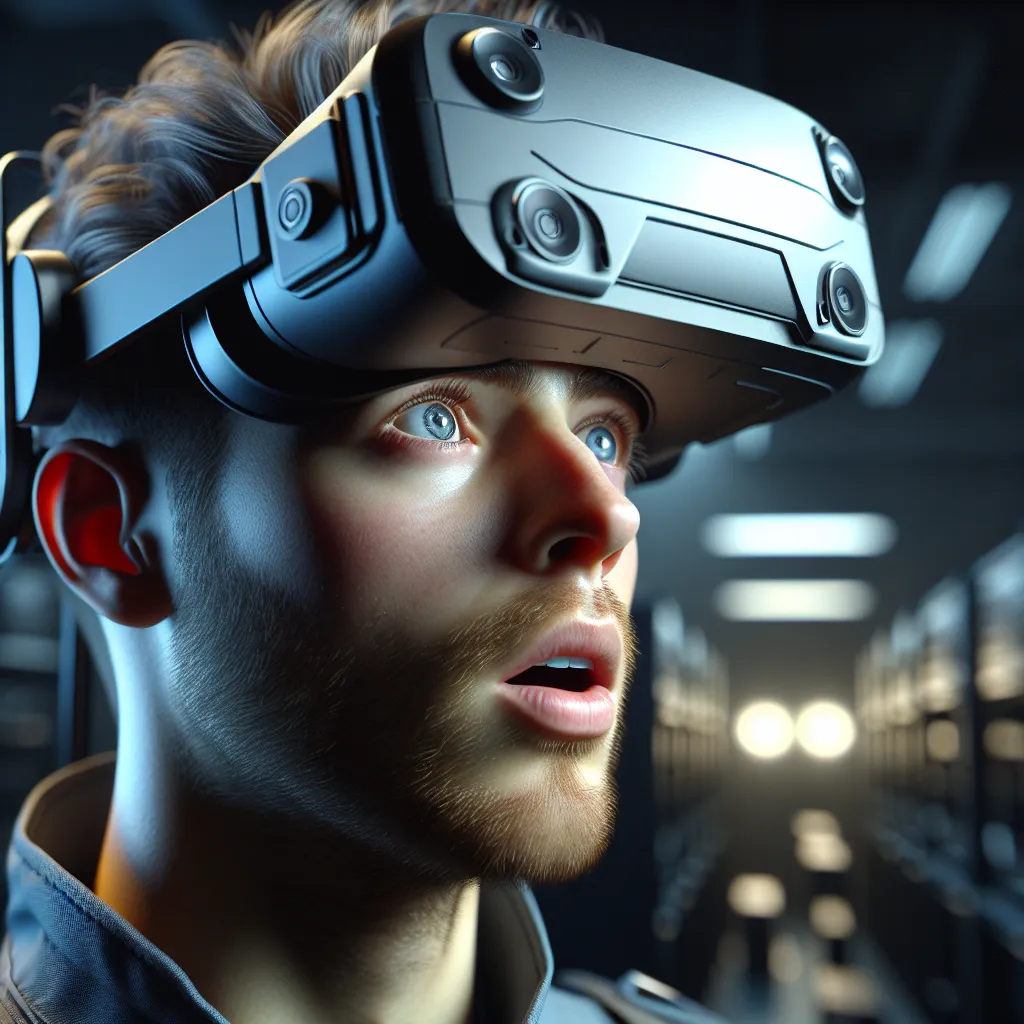– The Rise of Virtual Reality: A Game-Changer in Our Perception of Reality
Virtual reality (VR) technology has been revolutionizing the way we perceive and interact with the world around us. The rise of VR has brought about a paradigm shift in various industries, including gaming, entertainment, education, and healthcare. This innovative technology has opened up a new dimension of immersive experiences, blurring the line between the physical and virtual worlds.
One of the most significant impacts of VR technology is its ability to transport users to entirely new environments and realities. Through the use of VR headsets and interactive simulations, individuals can now explore and interact with digital worlds in ways that were previously unimaginable. This has not only transformed the gaming industry but has also paved the way for applications in architectural visualization, virtual tourism, and training simulations.
Furthermore, the integration of VR technology has led to advancements in the field of education and training. Students can now engage in interactive learning experiences, such as virtual field trips and lifelike simulations, providing a more engaging and effective learning environment. Similarly, professionals in various industries can benefit from realistic training scenarios without real-world consequences, significantly enhancing skill development and knowledge retention.
From a psychological standpoint, the rise of VR has sparked discussions about the potential impact on our perception of reality. As users become more engrossed in virtual environments, questions arise about the implications for mental health, social interactions, and our understanding of what is real. Research in this area is ongoing, aiming to understand the long-term effects and implications of extensive VR usage on our cognitive processes and emotional well-being.
In conclusion, the rise of virtual reality represents a game-changer in our perception of reality, ushering in a new era of immersive experiences and technological possibilities. As VR technology continues to evolve, its impact on various aspects of our lives is likely to expand, shaping the way we perceive, interact with, and ultimately understand the world around us.
– Immersive Experiences: How VR Technology is Transforming the Way We Interact with the World
Virtual Reality (VR) technology has brought about a revolutionary shift in the way we interact with the world around us. This immersive technology has the power to transport users to entirely new environments and experiences, blurring the lines between the virtual and physical worlds. By placing users at the center of meticulously crafted 3D environments, VR technology has unlocked unprecedented levels of immersion and engagement, fundamentally transforming the way we perceive and interact with reality.
One of the key impacts of VR technology is its ability to offer immersive experiences that are unlike anything previously possible. Through VR, users can explore distant locations, interact with lifelike simulations, and engage in activities that were once reserved for the physical world. This has profound implications across a wide range of fields, from entertainment and gaming to education, healthcare, and professional training.
Moreover, VR technology is reshaping the way we consume content and engage with information. Traditional modes of interaction, such as two-dimensional screens, are being gradually supplanted by fully immersive, three-dimensional environments that can be explored and manipulated in real time. This shift towards immersive experiences has the potential to revolutionize storytelling, visual arts, and communication, offering new ways for individuals to connect with content and with each other.
In conclusion, VR technology is driving a paradigm shift in the way we perceive and interact with the world. By enabling truly immersive experiences that transcend the limitations of traditional media, VR has the potential to redefine how we learn, play, and communicate. As the technology continues to evolve, the impact of VR on our lives is only poised to grow, unlocking new frontiers of human experience and interaction.
– Beyond the Screen: Unveiling the Potential of VR in Redefining Reality
Virtual Reality (VR) technology has seen a rapid evolution in recent years, revolutionizing the way we perceive and interact with the world around us. While VR initially gained traction in the gaming and entertainment industries, its potential goes far beyond the realm of entertainment. The immersive nature of VR has the power to redefine reality across various domains, from healthcare and education to business and beyond.
One of the most compelling aspects of VR is its ability to transport users beyond the confines of traditional screens, offering an immersive experience that engages multiple senses. By simulating real-world environments, VR has the potential to revolutionize training and education, allowing users to interact with lifelike scenarios in a safe and controlled manner. In the field of healthcare, VR is being used for simulations, surgical training, and therapy, offering a new level of realism and effectiveness.
Furthermore, in the realm of business and communication, VR has the potential to break down geographical barriers, enabling virtual meetings and collaborations that feel remarkably lifelike. This not only enhances productivity but also reduces the need for extensive travel, thereby contributing to environmental sustainability.
As VR technology continues to advance, its impact on redefining reality is becoming increasingly apparent. Whether it’s through creating lifelike simulations, immersive educational experiences, or virtual collaborations, the potential of VR to go beyond the screen and reshape our perception of reality is truly remarkable.



